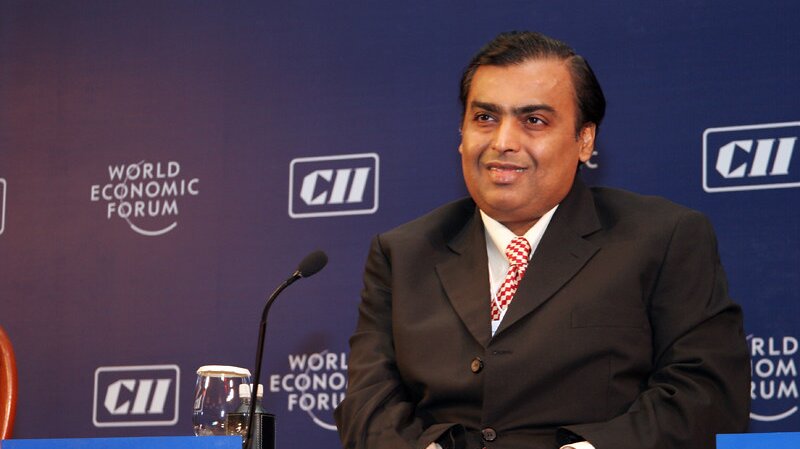Mukesh Ambani: The Power of Realistic Focus
Episode #4 of the course 10 billionaires and their lessons on success by John Robin
Welcome to our fourth lesson about the world’s billionaires and their lessons on success.
So far, we’ve learned from three billionaires, two in Africa, and one in China. Today, we’re going to learn something new from India’s richest billionaire.
Mukesh Ambani: The Steady Refinement of Successful Results
Mukesh Ambani, worth $36.8 billion as of August 2020, climbed his way to success. This climb has led him to build the world’s second most expensive private apartment building, worth $2.2 billion. Called Antilia, it has 27 floors, 3 helipads, an 80-seat theatre, terrace gardens, a spa, a temple, a staff of 600, and total square footage of 400,000. It is the world’s most luxurious private building, next to Buckingham Palace. On top of all that, in 2007, Mukesh gifted his wife a $44-million Airbus for her 44th birthday.
Mukesh worked his way toward this milestone by the relentless focus on a principle which will be what today’s lesson is about.
As with any good tower, he started with the foundation: helping his father with his textile and spice trading business, Reliance. He focused on the real goals needed to help that business grow and, over the years to come, continued to set realistic goals that solved real, immediate problems for the company. With this mindset, he discovered opportunities to increase the company’s revenue.
This focus on realistic problems helped him cultivate outside the box thinking. Mukesh saw the opportunity to trade in petrochemicals. He was able to continually redefine and refocus what Reliance did as a company, based on continually assessing weekly and quarterly the real problems and analytics of how the company was growing. Soon, he had Reliance trading in telecommunications and retail, and this choice opened the door for Reliance’s retail branch to become the largest retail company in India.
Today, Reliance Industries is an energy company valued at $88 billion as of August 2020, of which Mukesh owns a 44.7% stake.
Mukesh’s Billionaire Lesson
There are two common ways entrepreneurs approach business growth. The most common way is to enter with a big vision.
The big vision is what it sounds like: thinking about the bigger picture, usually in 5-10 years, then setting your business goals accordingly.
For example, you want to start a publishing company, so you imagine being distributed in bookstores all across North America, selling 1,000,000 copies a year, with many award-winning titles.
The problem with a big vision is it doesn’t tell you anything about the realistic path to get to the vision. Worse: there might be no realistic path at all. The big vision approach blinds you to this reality. For this reason, many businesses don’t get off the ground.
Mukesh’s approach is instead of a different kind of goal-setting. This involves realistic scalable goals.
Realistic scalable goals are goals that assess the immediate reality of work that needs to be done, and how that will scale with time.
Let’s use the publishing company example again:
Say you presently own an editing company that you built around your freelance editing gig. You have a cover artist and a book designer, and a production manager who knows the ins and outs of publishing. You have authors who would gladly share a percentage of their sales with you, rather than pay you a flat fee for your service.
You see a business opportunity—to make a percentage off book sales, rather than a capped wage for services. Your editing services company can instead scale up to become a publishing company.
Your realistic scalable goals would be:
• Incorporate as a publishing company.
• Create a publisher’s website.
• Contract and create production and marketing plans for existing authors.
• Put out a call for submissions and acquire more books.
• Assess data to make future acquisitions and marketing plans.
• Continue editing for clients as a separate division of the company.
All these goals are time-scalable. Having a publishing company means you can publish more books in the near future based on demand, and market data analysis. If you expand to bookstores, you do so first by way of a print run for a book with potential, placed in specific bookstores.
Realistic scalable goals give you the freedom to grow in the best direction, without getting tunnel vision that might otherwise commit you to a failing path.
Mukesh could have focused on the big vision of seeing Reliance as only a textile and spice trading company. Instead, he saw opportunities to use the existing company as a platform for trading. He was then able to seek out trading commodities with the best market, using realistic scalable goals.
He arrived in his legendary 27-floor apartment building, and $44-million birthday present budget, one floor at a time. The big vision came together from small, realistic assessments that added up.
Stay tuned for tomorrow, when we’ll head east, across the Pacific Ocean, to meet our next billionaire from Mexico.
Recommended resources
More details and photos about Mukesh’s Antilia tower
Recommended video
Success Secrets TV video on Mukesh Ambani’s success
Share with friends

